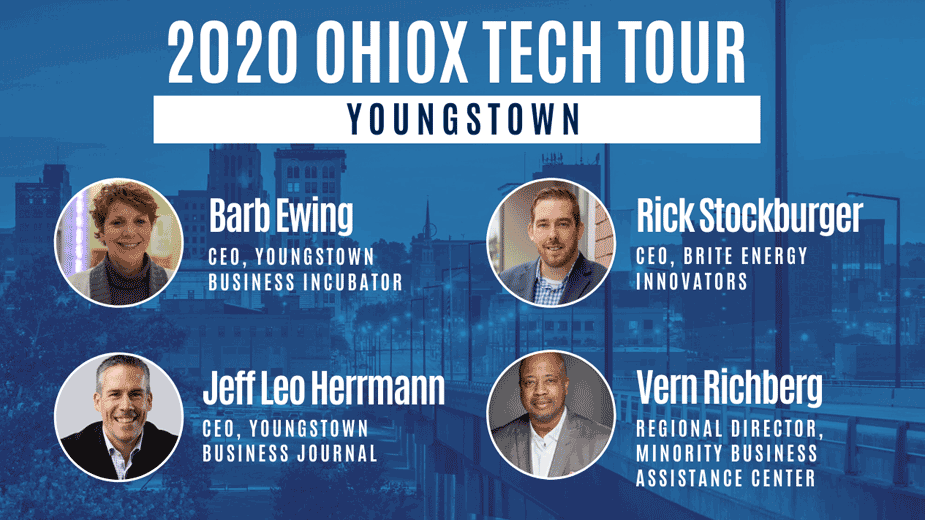YOUNGSTOWN, Ohio – While the coronavirus pandemic will certainly take its toll, tech businesses in the region are in a prime position to come out of the other side in a strong position, sector leaders said during a panel discussion July 15.
“Especially when you look at the East and West Coasts and communities that are dependent on mass transit, whose cost structures are upside down now, there are real opportunities in the Midwest to build programs to attract those companies here if they need space,” said Barb Ewing, CEO of the Youngstown Business Incubator. “We’re looking at this as a long-term opportunity for YBI to shift and grow into new areas that wouldn’t have presented as strongly six months ago.”
There will be winners and losers, she said, with some businesses finding new markets and others losing their footing. But the lessons learned will be valuable.
“Pivoting is vitally important and the companies that can see what they need to do and do it are the ones who are successful,” said Rick Stockburger, president and CEO of Brite Energy Innovators in Warren.
Joining Ewing and Stockburger in the OhioX Tech Tour series discussion were Youngstown Publishing Co. CEO Jeff Herrmann and Vern Richberg, business counselor for the Minority Business Assistance Center, housed at YBI.
The discussion was hosted by Chris Berry, founder of OhioX, an organization aimed at fostering connections among technological businesses in the state.
The conversation focused largely on how businesses have adapted to the ongoing pandemic and the “Voltage Valley” movement that has emphasized electrification technologies.
“A year ago, we had a conference with Steve Burns of Lordstown Motors and someone from Tesla who reports to Elon Musk talking about the future of electrification. It’s so cool that we get to be a part of something so future-facing,” Stockburger said.
While there are big names in the field that are likely well-known to area residents – Lordstown Motors Corp. and General Motors-LG Chem’s joint venture battery plant – the transformation reaches further than those names. In western Pennsylvania, the Shenango Valley had a long history in the electricity industry, with Westinghouse building transformers and a presence from GE. Today, that tradition is continued by Jim Landino and his company, JCL Energy.
Aptiv, formerly Delphi, operates a site in Warren that is developing technologies for electric vehicles, while Tata Steel – the former Thomas Steel Strip – builds casings for lithium ion batteries.
“It’s not just that Lordstown Motors came and all of a sudden everyone decided they’d go after electrification. We’ve been doing it and we never stopped,” Stockburger said. “One thing we learned from the steel industry is we can’t believe just in electrification. We have to have additive manufacturing. We have to diversify the economy and the leadership and be something that’s meaningful and resilient.”
Fostering that leadership is also important, Herrmann and Richberg noted. From his position at the Minority Business Assistance Center, Richberg believes the surge in technology companies can do that, especially if they’re as large as Lordstown Motors.
“It’s also good for our supply chain. There’s so many companies that used to supply GM. It’s going to create meaningful opportunities for leadership,” Richberg said. “[Companies] see that we have the infrastructure, hardworking people and everything it takes to turn this corner.”
Stockburger noted that Brite has 40 companies waiting to get help from the incubator and many will pivot from their original ideas.
Technologies being developed in the area can help young people chart a career course “that didn’t exist 10 years ago,” Herrmann added.
“You don’t have to follow the old recipe of going to college for four years and getting a degree,” he said. “There are many amazing things you can do simply by getting exposed at younger ages and connecting them to business and industry.”
